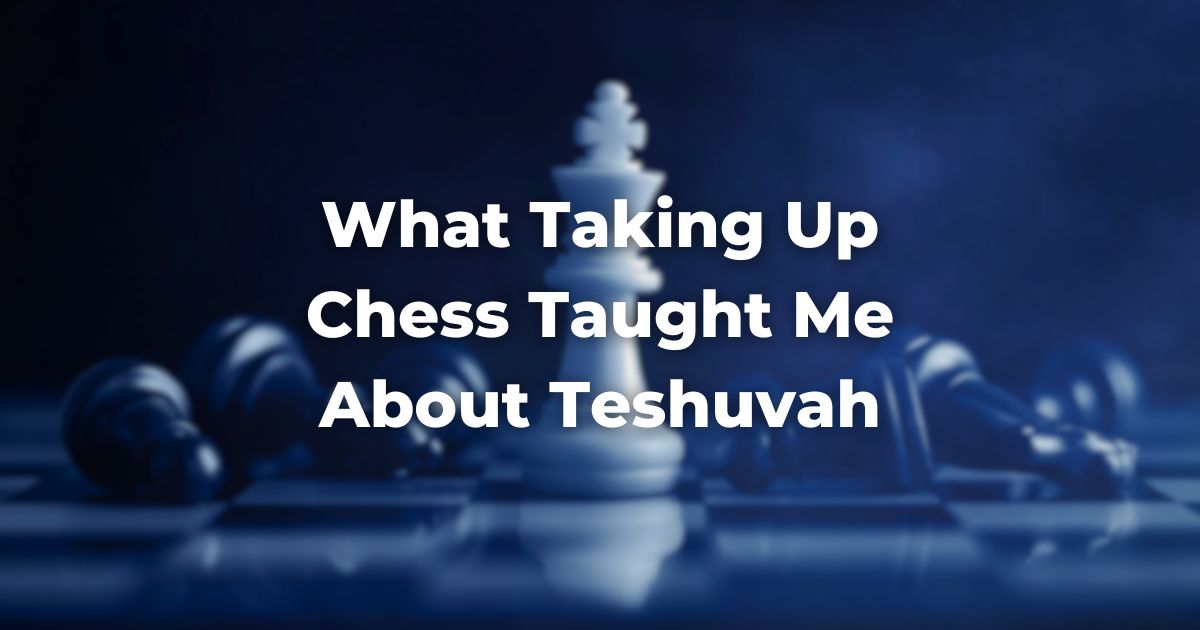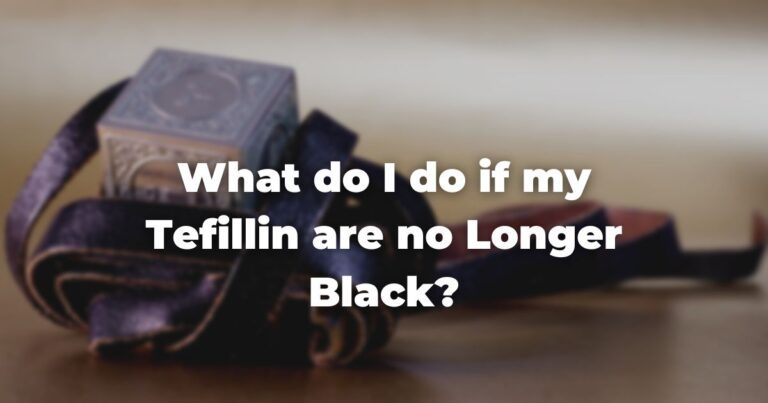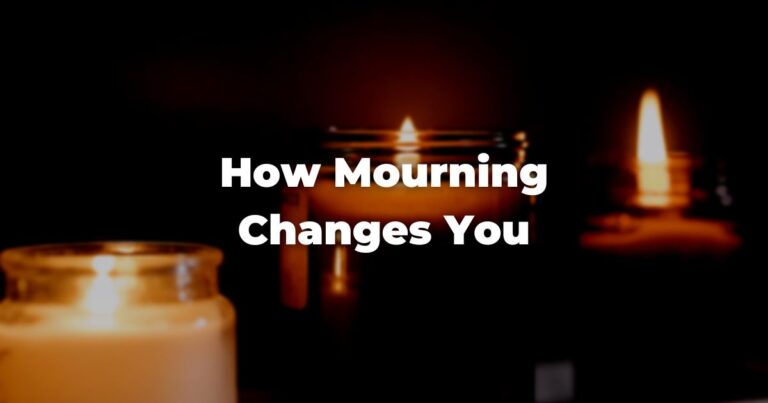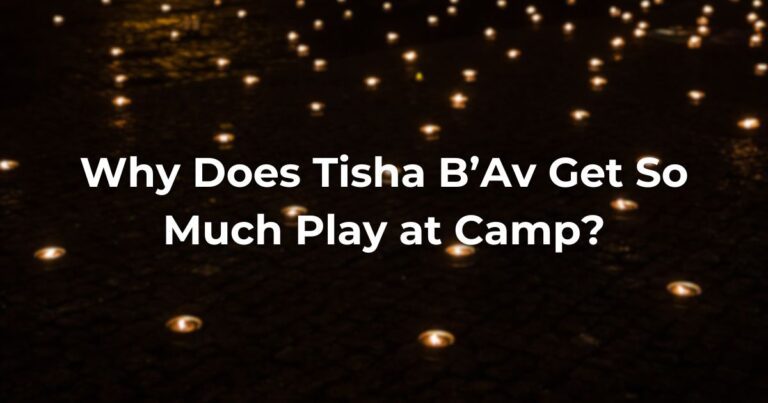I’ve already failed at my New Year’s resolutions. For some reason—again—I thought the secret to teshuvah was simply committing to being perfect. And I feel especially silly because I already had in place a system of self-improvement that was serving me life-changingly well. In my Notes app, I call it “The Chess Game.”
This strategy wasn’t my idea. It was inspired by a podcast by comedian and Yale sociologist Dr. Adam Valen Levinson, who himself was trying to wrap his head around a teaching of the Lubavitcher Rebbe, Reshimot 44, which covers the idea that, no matter what situation we might find ourselves in, we’re able to elevate our surroundings for the betterment of the world.
Note: I recently found out that Dr. Valen Levinson passed away on Nov. 28, 2024, at age 35. I hope you’ll let me share with you this one lesson I learned from him. May his memory be a blessing.
The Chess Addiction
I first decided to try my hand at chess a few months ago, and I was instantly as hooked on it as I was bad at it. The thrill of trying to dominate another human being in 20 minutes of abstract attrition, the humbling feeling of being wrestled into submission, the unbreakable desire to play again, feeling that you’re ever so slightly getting better—it was all so geshmak (meaning, delicious or fun).
The 11th-century rabbi Abraham ibn Ezra perhaps put it best, in what’s known simply as his “Poem on Chess,” translated here in rhyme by Nina Davis Salaman:
The Kings have met on the battle plain,
And war upriseth betwixt the twain.
Alike in number is either band,
And face to face do the armies stand.
Devoid of sword and of spear their strife;
Within their mouths is no breath of life.
In crafty guise is their battle fought;
With cunning art is their contest wrought.
As much as I loved my new obsession, I quickly found that playing without any training or tried-and-true strategy made my repeated losses feel akin to banging my head against a wall.
The Tip
The hint that made me a little better came to me indirectly, on the aforementioned podcast, via an episode of The Zal (Yiddish for a study hall). Valen Levinson, Z”L, was posed with the question of: How do we know we’re living our best life? If, for example, Martin Luther King Jr. had devoted his life not to civil rights but to volunteering in a soup kitchen, would he have failed his mission in the world?
Valen Levinson replied that it’s like trying to identify the best possible move in a chess game. Surely, there is one “best move,” but there is often a plethora of positive ones.
The podcast’s other host, Rabbi Dovid Grossbaum—who’s an aficionado of chess and one of the people who got me into the game—chimed in saying that, thanks to technology,
“There is an objective best move that humanity knows about in any given situation in chess. However … if I would be seeking the very best move before I move in chess, my clock would run out … You can’t let your clock run out, preventing you from doing even a good move which would get you the checkmate also.”
You can try this out on a chess website. The computer tells me that, in my last game of chess, I made 19 “best” moves, 19 “excellent” ones, 1 “good” move, 3 “inaccuracies,” and 1 “blunder.” (The engine can also identify “brilliant” moves, but I had none of those.)
I’m still stunned by how often the “best” move is one that even I, a total novice, make quickly and effortlessly. Sometimes, the ideal path is right in front of us and easy to follow—or the “best” path in a bad situation is simply not that great. Other times, the “brilliant” line eludes us.
Chess or Teshuvah?
When I heard Valen Levinson’s analogy, that life is a very complicated series of chess moves, I took it perhaps overly seriously. I opened my Notes app and made a “game review” for the choices I was making in my life. Making a minyan for someone who needs one? Probably the “best” move in that moment. Picking up toilet paper so my roommates aren’t mad at me? It was a “good” move, and I had a meaningful experience listening to music on the ride back, so I revised it to “excellent.”
The only helpful response to a wrong move, I quickly found out, is to find and make the next right one.
But Am I Winning the Teshuvah Game?
Another key way of evaluating a chess game is by “material,” the value of the pieces you have on the board. A knight, for example, is worth 3 points, while a queen is worth 9.
What is the value I’m trying to attain and maintain in life? For the moment, it’s taking care of my responsibilities, “adulting,” as the kids say. Additionally, I’ve long been in the habit of, at the end of each Shabbat, taking stock of how I’m generally feeling about life, what ought to continue, and what needs repair. These kinds of observations, I decided, would be my “material.”
I would not at all prescribe this practice, of seeing life directly in terms of a chess game, to someone else—it’s just a little experiment that suits the way my brain is wired and that I enjoy doing on and off. (When I make a “blunder,” I usually stop playing the “game” altogether.)
But when my New Year’s resolutions were failing, I found that recording chess moves was a whole lot better than that tired ritual. I knew that, instead of insisting on perfection, I should simply try to make the best moves I could identify, one at a time.
I went back and listened to the podcast episode and found that Valen Levinson himself was the most skeptical of his own idea. He points out that, in life, “There’s no knocking a king down and going, ‘I did it!’”
But chess isn’t an all-or-nothing proposition, either, as one of the essential parts of playing is setting up the pieces all over to play again. Or, as Ibn Ezra puts it:
When these prevail o’er their foemen all,
Behold, ’tis then that the dead men fall.
Yet they from death may arise again,
And cast their enemies ‘mid the slain.
I have no idea of most of the ways Valen Levinson’s impact will long live on, but from the handful of hours he touched my life, what I got from him was the lesson that life is, to some small extent, like a chess game. Win or lose, we should all seek out the optimal moves, or at least, “good” ones within the time we have.
Author
-

Cody Fitzpatrick is a freelance writer and editor based in Arizona. In addition to Exploring Judaism, he currently mainly works with 18Forty and Phoenix New Times. He is a member of The New Shul in Scottsdale, Arizona.
View all posts






